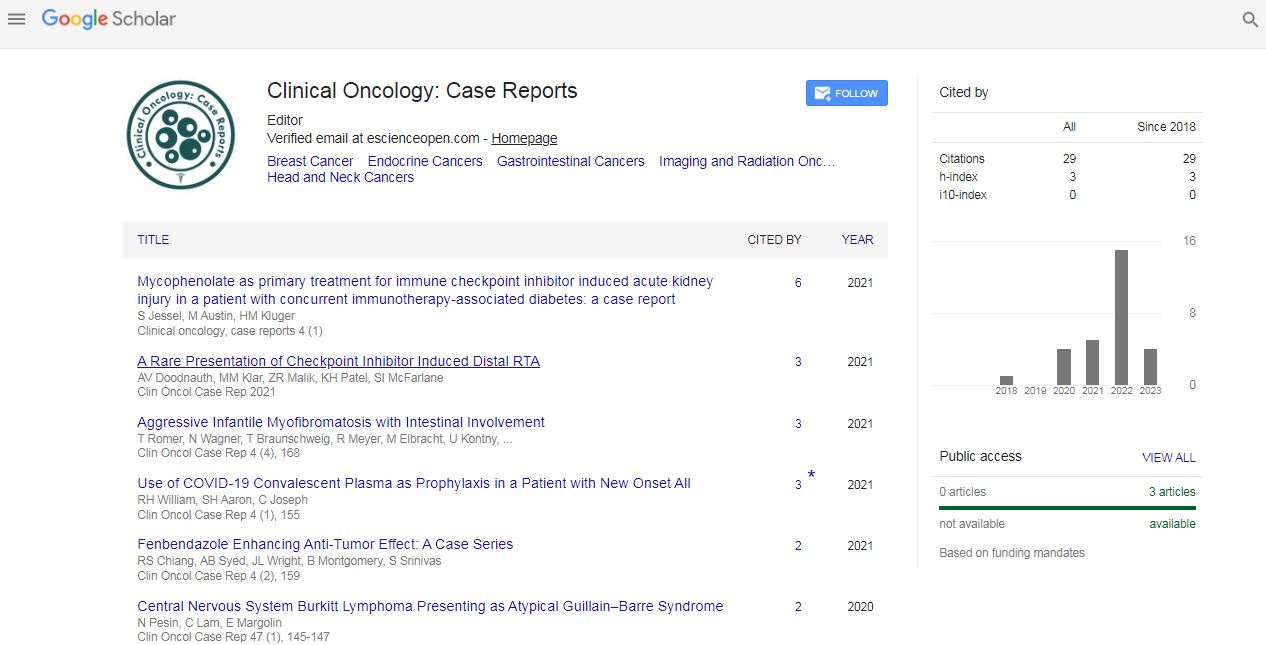Case Report, Clin Oncol Case Rep Vol: 4 Issue: 6
A Rare Presentation Of Checkpoint Inhibitor Induced RTA
Andrew V Doodnauth1, Miriam M. Klar1, Zohra Malik2, Krunal H. Patel1, Daniela Tello1, Safi Afzal3 and Samy I McFarlane1*
1Department of Internal Medicine, State University of New York, Downstate Health Sciences University, Brooklyn, New York, United States
2Department of Internal Medicine, St. John's Episcopal Hospital, Far Rockaway, New York, United States
3Department of Internal Medicine, Cape Fear Valley Medical Center, Fayetteville, North Carolina, United States
*Corresponding Author : Samy I McFarlane
Samy I McFarlane, Department of Medicine, Division of Endocrinology, Internal Medicine Residency Program Director, State University of New York, Downstate Medical Center, 450 Clarkson Ave, Box 50, Brooklyn, NY 11203-2098
E-mail: smcfarlane@downstate.edu
Received: May 07, 2021 Accepted: June 23, 2021 Published: June 30, 2021
Citation: Doodnauth AV, Klar MM, Malik Z, Patel KH, Tello D, et al. (2021) A Rare Presentation of Checkpoint Inhibitor Induced RTA. Clin Oncol Case Rep 4:6.
Abstract
Immune checkpoint inhibitors have opened a new era in the treatment of advanced malignancies, resulting in increased use and remarkable clinical responses. However, there has been an increase in the incidence of immune-related adverse events as a result of the immunologic effects of these therapies. Kidney immune-related adverse events incidence is reported as low at 2% to 5%1. Renal toxicity commonly described includes acute interstitial nephritis, minimal change disease, immune complex glomerulonephritis2. Renal tubular acidosis (RTA) has occasionally been reported but is uncommon. We report a patient with a known history of metastatic melanoma undergoing treatment with Ipilimumab + Nivolumab who developed an RTA and was successfully treated with stress dose steroids and sodium bicarbonate. To date, there are a limited number of reports describing immune-related adverse events causing RTA. We describe the clinical characteristics, potential mechanisms, and management of patients who develop an immune-related RTA.
 Spanish
Spanish  Chinese
Chinese  Russian
Russian  German
German  French
French  Japanese
Japanese  Portuguese
Portuguese  Hindi
Hindi 